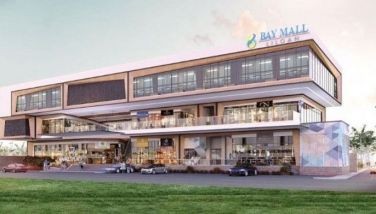Steady state of economy
There are critical costs of industrialization and high growth which include among others pollution, congestion, stress, crime and destruction of natural capital. Back in the seventies, advocates of no-growth theory argued that economic growthmania has already done a lot of damage to the ecological system and that the quality of life have dramatically gone down since -- cancer, increase incidence on pathological infections and a host of other diseases which have risen along with progress endangering the future of the generations to come. And despite advances in science and technology, waste produced by rapid industrialization can only be mitigated but never eliminated according to Negative Population Growth (NPG), a non profit organization advocating "A No-Growth, Steady-State Economy (SSE)."
To orthodox economists, an SSE or if a no-growth society were to come about, it would be riddled with more problems as cessation of growth would amount to conflicts over the distribution of the shrinking economic pie.
But NPG counter-criticizes that the most obvious, and telling, criticism of the concept of perpetual economic growth is that it is also an impossibility. "Economic growth, in fact all economic activity, even in the age of information technology, requires inputs of materials and energy, and results in outputs of waste and pollution." Thus the idea of sustainable growth can never be achieved if and when the time comes our natural resources were to finally succumb to complete depletion and exhaustion because "the present level of economic activity cannot long be sustained without causing permanent and irreparable damage to our environment and resources."
Another argument against SSE is that many economies have had already reeled with no growth rates in the past and that they brought nothing but massive unemployment and bankruptcy like what happened during the Great Depression in the 30s and the recession in the seventies. Herman Daly, who by the way was the originator of the SSE theory, describes those effects of non-growth as failures of the hypergrowth mentality rather than the effects of SSE. "The two cases are as different as night and day. No one denies that the failure of a growth economy to grow brings unemployment and suffering. It is precisely to avoid the suffering of a failed growth economy (we know growth cannot continue) that we advocate a SSE."
In an SSE, the key variable here is population reduction and ensure that waste outputs should fall within the natural absorptive capacities of the environment. The rules on renewable inputs is that harvest rates should not exceed regeneration rates (nondepletion of the source services of natural capital) while for non-renewable inputs, the depletion rate should not exceed the rate at which renewable substitutes can be developed. Simply put it, SSE is a largely a physical system of economy, only more restrictive. Non-physical parts (ideas and knowldege) are left to grow without restriction. But the physical components resources, populations, and man-made capital are to obey the natural law with the goal to establish a sustainable scale that does not exceed the capacity of the environment.
The Center for the Advancement of the Steady State Economy (CASSE), describes the benefits of a steady state economy in three categories: environmental, lifestyle, and moral. "Environmental benefits stem from the establishment of a steady state economy at a sustainable scale. An economy with stable population and consumption features decreased liquidation of natural resources and less waste deposition in the environment. Such an economy that respects biophysical limits does not excessively disrupt natural ecosystems and ecosystem services. It is right-sized to balance with nature and protect the life-giving resources and processes of the planet."
The SSE theory appeals as a good alternative not only for its simplicity to address long-term sustainability but because it gets straight to the equation how natural capital can be expended intuitively according to the rules of nature.
One thing that is hard to imagine, though, under an SSE regime is the possibility of an eventual cessation of international trade. Such consequence may happen as it would force many countries to produce only according to the needs of their respective populations to maintain the equilibrium, that is, neither to overproduce or underproduce for themselves. But what about those countries that are not gifted with the natural resource to cultivate for their own food production? Who will produce for them or what will become of their economies if their resources only permit them to produce non-essential goods?
I am not trying to find fatal flaws of the system. All I wish is to find plausible answers from within this framework. After all, not one economic system being offered to date has ever solved the widening disparity between the haves and the have nots. And who knows, SSE may be one of the answers that we've been looking for all this time.
Send [email protected]
- Latest
- Trending
























